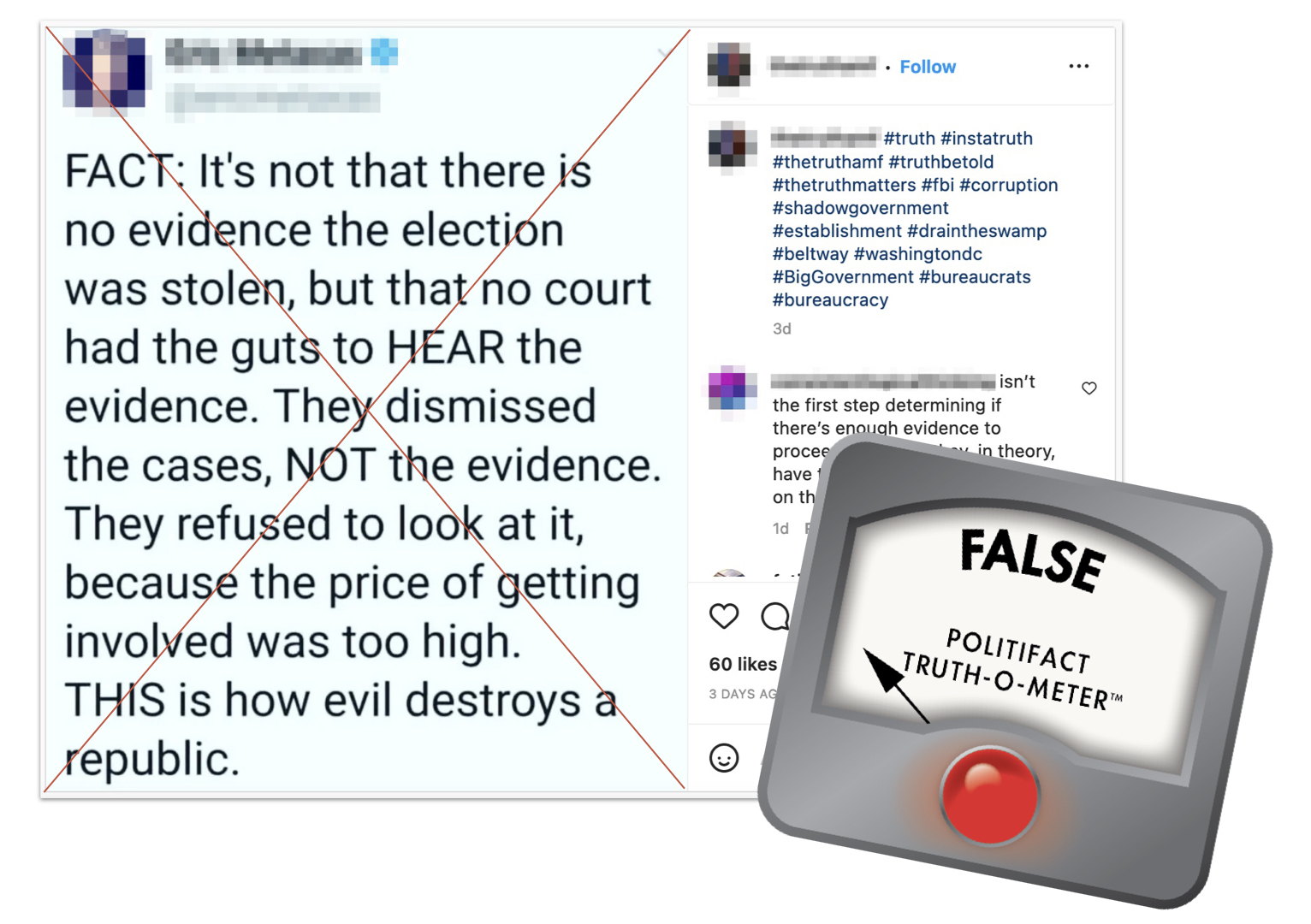
Former President Donald Trump lost the presidential election to Joe Biden in November 2020. Unwilling to accept that defeat, the Trump campaign and its allies took their grievances to the courts — an ultimately unsuccessful effort to overturn the results.
Conservatives filed a flood of lawsuits alleging there was widespread fraud in the 2020 election that robbed Trump of victory. At nearly every turn, judges across the country rejected such lawsuits for a variety of reasons, including lack of sufficient evidence to support the claims of fraud.
Nearly two years later, some social media users continue to claim that the courts refused to even consider such evidence.
"It’s not that there is no evidence the election was stolen, but that no court had the guts to hear the evidence," read an image posted Oct. 25 on Instagram. "They dismissed the cases, not the evidence. They refused to look at it, because the price of getting involved was too high. This is how evil destroys a republic."
This post was flagged as part of Facebook’s efforts to combat false news and misinformation on its News Feed. (Read more about our partnership with Meta, which owns Facebook and Instagram.)
Election security officials — including those in Trump’s own administration — have said the 2020 election was secure. When fraud occurred it was isolated and did not change the results. There is no evidence of widespread fraud.
Many post-election lawsuits were thrown out for jurisdictional or procedural reasons, but several judges also noted that the allegations of fraud lacked proof.

(Screenshot from Instagram.)
Courts operate according to law, said Richard Pildes, a New York University law professor.
"Sometimes the law is that the person trying to bring a claim doesn’t have any legal right to do so, or that a claim that should have been brought before the election cannot be brought after the election, when everyone has voted already," Pildes said. "That’s not because courts lack the ‘courage’ to address these cases on the merits. It’s because courts are following the law about what constitutes a valid legal claim."
News reports and court documents show that some of the judges who dismissed Trump supporters’ post-election lawsuits considered what the plaintiffs presented as their evidence and still dismissed those challenges.
In a number of cases, the courts rejected claims "on the merits as well," Pildes said.
In Nevada, Trump supporters sued to challenge the state’s election results and seeking an order from the court declaring Trump the winner or declaring Biden’s victory "null and void."
Dismissing the lawsuit on Dec. 4, 2020, District Court James T. Russell wrote that the people behind it failed "to provide credible and relevant evidence" to contest the Nov. 3, 2020 election in accordance with Nevada laws.
Trump allies "did not prove under any standard of proof that illegal votes were cast and counted or legal votes were not counted at all, due to voter fraud," Russell wrote. The contestants failed to prove that illegal votes by ineligible or deceased voters were cast and counted, he wrote.